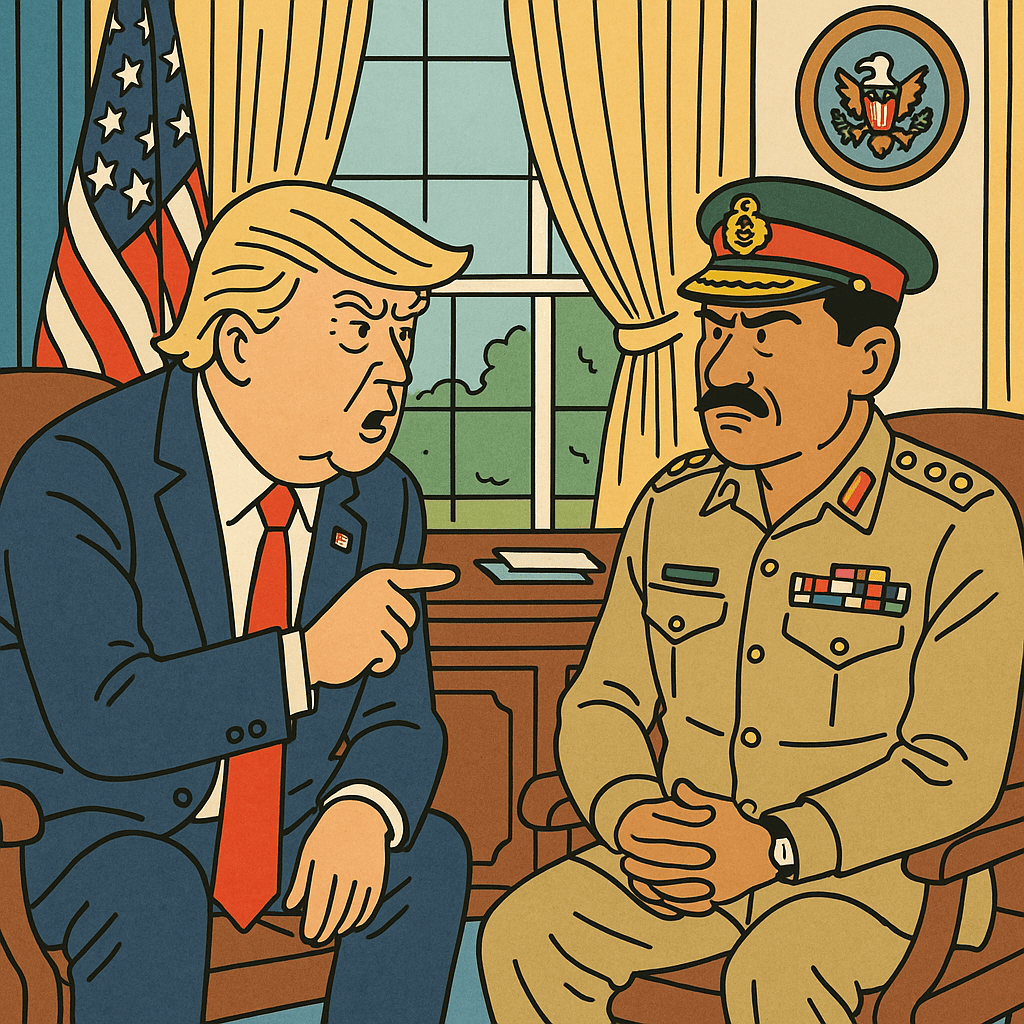Acche Din (for Pakistan Army?)
The opposition in India has got yet another opportunity to point out a foreign policy failure for the Modi government. This time it is the meeting between Donald Trump and Asim Munir. Donald Trump has shown that he is not averse to talking to anyone. He has been talking with the Russians. He keeps inviting the Iranians to the negotiating table. So why will he shy away from talking with the Pakistanis?

Indians believe that the world should punish Pakistan for being a terror state, and the only reason the chief of Pakistani establishment should be called to Washington is to tell them that sanctions will be imposed on them and they better behave. Unfortunately for India, the world does not share its opinions on what should be done with Pakistan, even if it may agree that Pakistan is a nuisance that has to be managed.
Senior military and intelligence officials from France, Germany, Britain and the US are on record saying that if you have to talk to anyone in Pakistan, it is the army, and that the army plays a double game. Hence, it should not come as surprise to anyone, especially Indians, that in Pakistan the civilian government is severely restricted, especially in matters of foreign affairs. However, Indians still keep pointing out on international fora that this is some kind of revelation and the world must stand up and take notice. The truth is that no one gives a damn about the power equation in Pakistan. Even if India were to become a dictatorship, no one would care. The Press Freedom Index and similar such indices are a joke. Even the ones who study them know that they are a joke. When you got to do business with someone, you got to do business, unless you are seen as a very obvious threat.
Pakistan has repeatedly demonstrated that it wants to be relevant in world affairs. It is a country that exports nothing of significance – in goods or services. However, being a security state, it has accumulated a large army, and this must be put to use (read: kept busy). Some of it is indeed put to good use – it is one of the largest contributors of personnel to UN Peace Keeping Forces. But that is like a back office job and does not earn it much recognition or clout. It wants to be at the frontlines. India is known for IT, pharma manufacturing, for exporting CEOs, automobiles, petroleum products. Pakistan wants to be known for something. Until it can stop its smartest people from migrating, it will be able to offer only one thing to the world – protection from its own troublesome creations.
Defence circles are abuzz with speculations about what Trump and Munir discussed at the Oval Office. It could have been one or more of the following:
- Will Pakistan provide military support to Iran?
- Will Pakistan provide military bases to the US?
- Will Pakistan provide asylum to Ayatollah Khamenei if there is a regime change in Iran?
How can questions 1 and 2 be valid at the same time, one would think. Could a country’s stance be so fluid that it can swing from one to the other? To be fair, Pakistan itself has not given any indication of either. It’s all speculation from armchair foreign affairs pundits (including yours truly). Pakistan has been harshly critical of Israel, although it does not automatically translate to support for Iran. After Munir’s meeting with Trump, ISPR – the public relations arm of the Pakistan Military released a somewhat cryptic message saying “US-Pakistan relations have achieved in the last three days, what India could not achieve in three decades.” I am not sure what the Pakistanis think that India has been trying to achieve for three decades in relation to Iran. But the message clearly brings one back to the Pakistani dream of wanting desperately to be seen in the world as contributing something.